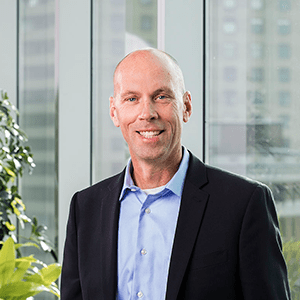March marks Developmental Disabilities Awareness Month, a time to increase public awareness of the needs and potential of all people with developmental disabilities. The awareness month also highlights a time to provide encouragement and opportunities for individuals with developmental disabilities to achieve self-sufficiency and independence.
A developmental disability is attributable to a mental, physical or combined impairment that results in substantial functional limitations in three or more activities of daily living, such as self-care, communications, learning, mobility, problem solving or independent living. Examples of developmental disabilities include cerebral palsy, epilepsy and Down syndrome. Despite having unique challenges, with the right individualized supports, people with developmental disabilities have the potential to contribute greatly to their families, workplaces and communities.
Importance of inclusion
It’s vital to consider and value people with developmental disabilities in the same way we would anyone else. While we are all different and unique, we tend to have similar aspirations for a good life — living somewhere we enjoy with those closest to us, engaging in work and social activities that interest and stimulate us, and maintaining relationships with family and friends. It’s pivotal to respect the autonomy of people with developmental disabilities to make decisions for themselves based on their own preferences and to treat them with the same respect we expect people to treat us.
Additionally, it’s important to advocate that people with developmental disabilities be meaningfully included in activities and places that many of us take for granted, like the school system, in sports and recreational activities, places of worship, volunteering activities and in the workplace. As a health plan, our team at CareSource is creating a culture where our care coordinators discuss employment during the initial and annual plan of care. We provide education to the person or their caregiver when they are interested in a job and help to identify and secure the supports necessary to accomplish their employment goals.
As an employer, we need to practice what we preach. At CareSource, we are committed to employing and creating internship opportunities for people with developmental disabilities. Sometimes, we need to customize a job to match the skills and strengths of a person. Other times, we need to offer a compatible job coach or technology to assist and allow them to be as productive and successful in their role as possible. By embedding evidence-based practices and flexibilities into our workplace, our workforce will be more reflective of the rich diversity of our markets and the people we serve. The quality of the services we will provide will be enriched, and our strategies, ideas and innovations will be better informed by the very populations we are here to serve.
How to be supportive
Common misconceptions about people with developmental disabilities is that they are limited in what they can do or how they can contribute to family life, the workforce or their communities. We can minimize these assumptions by meaningfully engaging with developmental disabilities in our workplaces, social circles or various recreational activities. The more that people with developmental disabilities are included in typical community life, the clearer their value as friends, classmates, employees and coworkers is realized by the public and people who benefit from their engagement.
People should also utilize resources and take the chance to educate themselves about the Developmental Disabilities Assistance and Bill of Rights Act of 2000, the landmark U.S. Supreme Court case Olmstead v. L.C., the federally funded Developmental Disabilities network (including state Councils on Developmental Disabilities, University Centers for Excellence in Developmental Disabilities Education, Research, and Service, and state Protection and Advocacy Systems). Also, consider learning more about advocacy groups focused on people with developmental disabilities like Self-Advocates Becoming Empowered and TASH.
As private citizens, we can engage as a volunteer for advocacy organizations supporting people with developmental disabilities, we can become a mentor or peer to someone with intellectual and developmental disabilities, or we can participate in community events that are focused on promoting people with developmental disabilities. As CareSource expands its programs and investments in the developmental disability population through our Complex Health Solutions portfolio, we are creating more opportunities for everyone to engage with people with developmental disabilities and support them in achieving enhanced quality of life outcomes and to live their best lives.
Steve Smitherman is president of CareSource Indiana.










